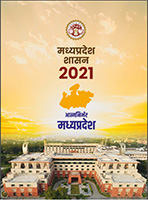 Diary/calendar 2021
Diary/calendar 2021
Severity: Warning
Message: fopen(/var/lib/php/sessions/ci_sessionmkph1errl4n6sprfd19agsa930dnmdfk): failed to open stream: No space left on device
Filename: drivers/Session_files_driver.php
Line Number: 172
Backtrace:
File: /var/www/html/redcross/application/core/MY_Controller.php
Line: 8
Function: __construct
File: /var/www/html/redcross/application/libraries/Frontend_Controller.php
Line: 9
Function: __construct
File: /var/www/html/redcross/application/controllers/Page.php
Line: 18
Function: __construct
File: /var/www/html/redcross/index.php
Line: 318
Function: require_once
First Medical Responders programme was piloted in 2011. The name of the programme was changed from First Medical Responders (FMR) to Social & Emergency Response Volunteers (SERV). The SERVs have been able to demonstrate their volunteering services in the recent disasters in Madhya Pradesh, Uttarakhand floods, J&K floods, Odisha cyclone Phailin, Tamil Nadu floods, Kerala floods and several other interventions. The volunteers worked closely with the local administration to provide search and rescue services and also distributed relief material and provided shelter to the people affected by the disasters.
India is one of the highly prone nations which is vulnerable to almost all types of disasters. There is a paradigm shift all over the world including India, from response centric approach to a holistic approach with focus on prevention, mitigation and preparedness. It is not possible to prevent all disasters, but it is certainly possible to undertake preventive measures and prepare the community to mitigate the impact disasters. IRCS has undertaken a series of measures to achieve its objectives. There are a number of projects and programmes which are being implemented through various state and district branches. These projects and programmes are either funded by national headquarters or by other donors. However, the size and scale of these programmes are limited. Some of these programmes are going on for quite some time and have established their usefulness. Therefore, in order to build resilience in the community and to make an impact it is felt that while the existing programmes may continue. IRCS NHQ should focus on one project and implement it in a big way.
It is in this context that SERV is proposed to be implemented in all the state branches in a big way. SERV is an important initiative in many different ways. This programme ensures direct linkages of IRCS with the communities as the volunteers are selected from their own communities. The volunteers trained from within the community are available to provide immediate support in golden hours till the formal response agencies reach. This has been evident during various disasters/emergencies in recent past where SERVs were able to demonstrate their usefulness. Programme also helps in strengthening relations with the local government departments and other stakeholders.
The concept of SERV is premised upon the principles of Community-Based Disaster Risk Reduction (CBDRR). It recognizes that:
It is envisaged that the SERVs will be trained as per prescribed modules pertaining to deliver the following:
Severity: Warning
Message: Unknown: Failed to write session data (user). Please verify that the current setting of session.save_path is correct (/var/lib/php/sessions)
Filename: Unknown
Line Number: 0
Backtrace: